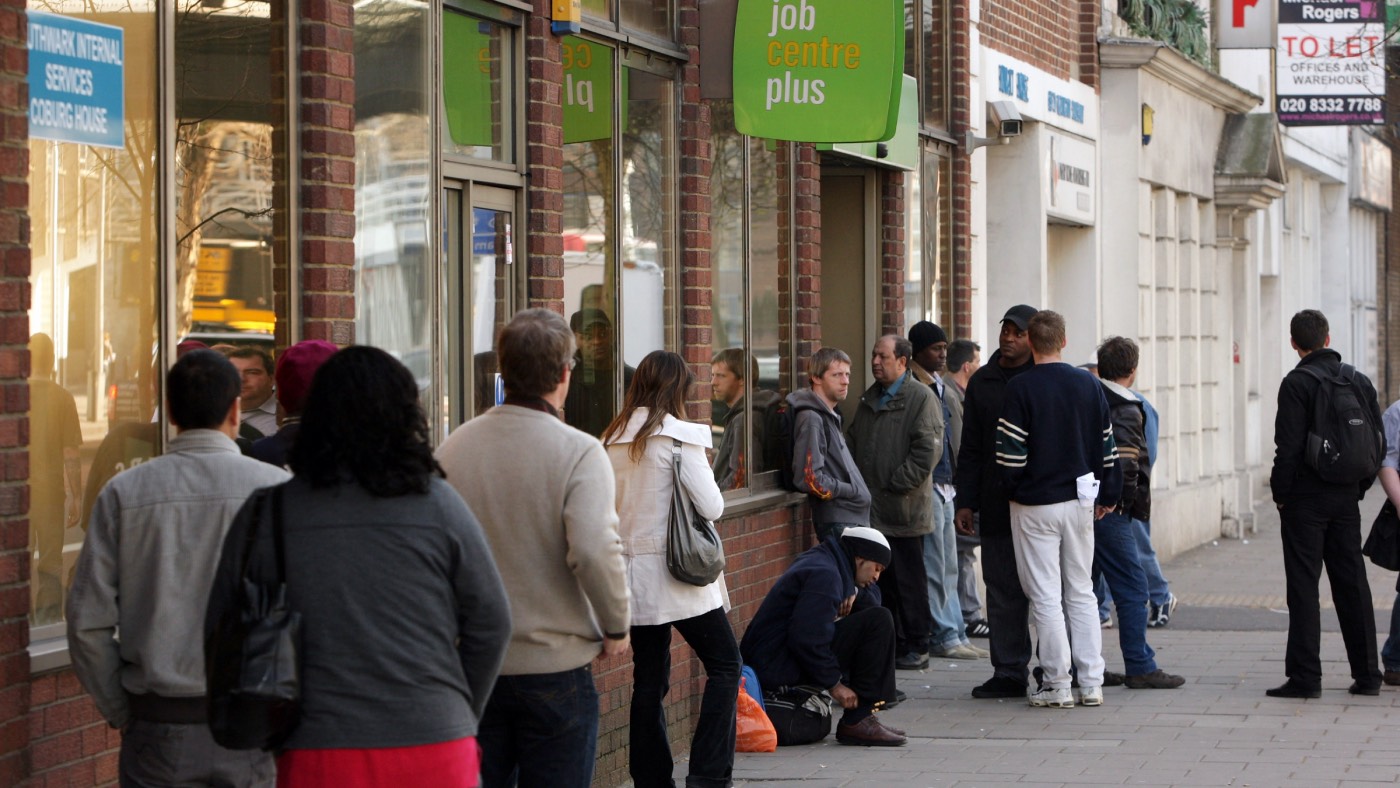Coronavirus: UK unemployment set to double as GDP collapses
Warnings coronavirus will cause economic hit ‘multiple times that of the global financial crisis’

A free daily email with the biggest news stories of the day – and the best features from TheWeek.com
You are now subscribed
Your newsletter sign-up was successful
Unemployment in Britain is expected to more than double in coming months, as economists warn that the impending rise will be even sharper than during the 2008 financial crisis.
Investment bank Nomura predicts an unemployment rate of 8% in the April-June quarter, rising to 8.5% in the following three months. In January, the figure was 3.9%
It says the effects of the pandemic will be an economic hit “multiple times that of the global financial crisis”, despite government efforts to stabilise the economy with huge stimulus pledges.
The Week
Escape your echo chamber. Get the facts behind the news, plus analysis from multiple perspectives.

Sign up for The Week's Free Newsletters
From our morning news briefing to a weekly Good News Newsletter, get the best of The Week delivered directly to your inbox.
From our morning news briefing to a weekly Good News Newsletter, get the best of The Week delivered directly to your inbox.
The 8% rate would be the equivalent of an additional 1.4 million people unemployed and a total jobless level of 2.75 million, according to The Sunday Times.
Nomura also expects a drop in GDP of 13.5% in the second quarter, more than six times the biggest quarterly fall during the financial crisis.
–––––––––––––––––––––––––––––––For a round-up of the most important business stories and tips for the week’s best shares - try The Week magazine. Get your first six issues for £6–––––––––––––––––––––––––––––––
Allan Monks, from JP Morgan, said: “A sustained rise in unemployment would clearly be a threat to the strength of the economic recovery, even once social distancing measures are relaxed.”
A free daily email with the biggest news stories of the day – and the best features from TheWeek.com
The Resolution Foundation added that “the country is already in the midst of an unemployment crisis that is building much faster than during the financial crisis”.
Over the weekend, more than 2,000 jobs were put at risk as casual dining chain Carluccio’s reportedly lined up administrators. The collapse of rent-to-own housing giant BrightHouse put a further 2,400 jobs in danger.
Monsoon Accessorize, the fashion chain, is also seeking a buyer with restructuring experts from FRP, according to The Guardian. The proposed sale raises fears over a further 3,500 jobs.
Arcadia Group, owned by Philip Green, is pausing payments to its pension fund, while Debenhams is expected to furlough the vast majority of its 22,000 staff this week, The Sunday Times reports.
Airline industry chiefs have warned the aviation sector is “entering the danger zone”, the BBC says, with requests for state aid expected from Virgin Atlantic and others.
Dairy farmers have also said they will go out of business because the price they are paid for milk has fallen, despite shortages in some supermarkets, the broadcaster adds.
“This is going to be a global pandemic of unemployment,” said David Blustein, a professor of counselling psychology at Boston College and the author of The Importance of Work in an Age of Uncertainty: The Eroding Work Experience in America.
“I call it a crisis within a crisis,” he told the BBC.